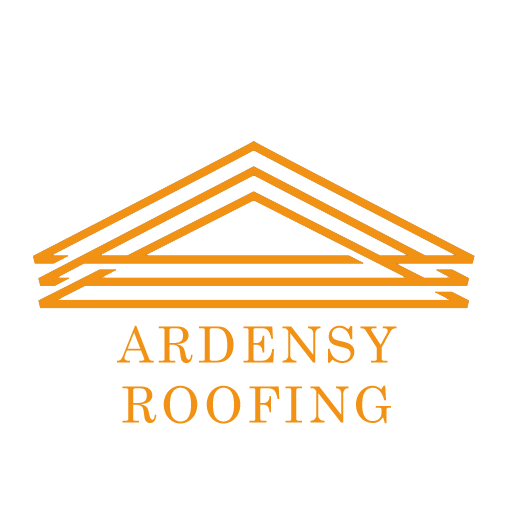Choosing the Right RV Roof Material for Garner’s Hot, Humid Climate: A Cost and Longevity Analysis
When your RV roof needs replacement in Garner, North Carolina, understanding how different materials perform in the region’s humid subtropical climate can save you thousands of dollars and years of headaches. With summers that are hot and muggy, winters that are short and very cold, and temperatures typically varying from 33°F to 89°F, Garner presents unique challenges for RV roofing materials that demand careful consideration.
Understanding Your RV Roof Material Options
The four primary RV roofing materials available today each offer distinct advantages and drawbacks. Many people consider fiberglass RV roofs to be the best choice of all RV roofing options, though it comes with a premium price tag. The membrane options—EPDM, TPO, and PVC—provide more budget-friendly alternatives with varying performance characteristics.
Fiberglass roofs last between 30 to 50 years, whereas TPO roofs will likely need some form of repair maintenance around year 20, making longevity a critical factor in your decision. However, the initial investment varies significantly between materials.
Cost Comparison: Initial Investment vs. Long-Term Value
Understanding the true cost of RV roof replacement requires looking beyond initial material prices. TPO is significantly lesser in cost than fiberglass, ranging between $5 to $16 per square meter of material; in contrast, fiberglass costs upwards of $90 to $110 per square meter, making it a much pricier option upfront.
For membrane roofing options, the cost hierarchy typically follows this pattern:
- EPDM: $0.50 to $3.50 per square foot for materials alone, plus $3 to $7 per square foot for replacement labor
- TPO: $4 to $10 per square foot installed or $1.00 to $2.50 per square foot for materials only
- PVC: $5 to $12 per square foot with installation or $1.50 to $3.00 per square foot for materials only
While PVC roofing typically costs more per square foot than EPDM and TPO, the toughness and overall durability of PVC roofing may make it more cost-effective in the long term.
Longevity in Garner’s Climate Conditions
Garner’s climate presents specific challenges that affect roof material longevity. Categorized by the Köppen climate classification as Cfa, Garner possesses a humid subtropical climate with no specific dry season, and humidity hovers between 73% and 76%, contributing to the region’s known mugginess.
Here’s how each material typically performs over time:
EPDM (Ethylene Propylene Diene Monomer): Properly installed EPDM roofs have been known to last up to 50 years before requiring replacement, with an average life expectancy of over 20 years. However, in the northeast, a typical EPDM rubber roof will likely need to be repaired within five to fifteen years from the day it was installed due to leaky EPDM membrane seams.
TPO (Thermoplastic Polyolefin): There are some instances where TPO roofs have been known to last for over 30 years, with an average lifespan of about 20 years. For Garner’s climate, TPO is more energy-efficient and helps to cool down your RV, especially if you live in states with warmer climates.
PVC: A high-quality TPO roofing system is estimated to have a lifespan of between 20 and 30 years, though PVC typically outperforms TPO in longevity tests.
Fiberglass: In terms of longevity, it’s similar to EPDM rubber, ranging between 25 and 30 years, with some installations lasting even longer.
Climate-Specific Considerations for Garner
Garner’s hot, humid summers create additional stress on RV roofing materials. Fluctuations in temperature are perceptible, with the highest average highs recorded from 85.6°F in June to a peak of 89.4°F in July, subsequently high temperatures gradually subside to reach lows averaging 32.9°F in January.
This temperature variation affects material performance differently. PVC roofing may not be the best choice for rigs that spend a lot of time in very cold climates, though Garner’s relatively mild winters make this less of a concern. Meanwhile, PVC roofing is recyclable and energy-efficient, with excellent solar reflectivity to keep an RV cooler, making PVC roofing a more eco-friendly option overall.
Professional Installation and Maintenance
Regardless of material choice, professional installation is crucial for maximizing longevity. When you need expert roof replacement garner services, working with experienced technicians ensures proper installation and long-term performance.
Trusted, integrity, and respect are the bedrock of Stream RV’s company, and these values are translated into the services they provide their customers. Located in Creedmoor, NC, Stream RV operates Monday through Friday from 9am to 4:30pm, serving the greater Garner area with fully licensed, insured, and certified technicians who are experts in RV roof replacement.
Making the Right Choice for Your RV
For Garner’s climate, TPO emerges as an excellent middle-ground option, offering the lowest lifecycle cost with 20 plus years of life expected if a 60 mil product is used. Its energy-efficient properties help combat the region’s intense summer heat, while its durability stands up to the humidity and temperature fluctuations.
EPDM remains the most budget-friendly option upfront, though factors that affect the longevity of your RV roof material include weather conditions and how well it is maintained. For those prioritizing longevity over initial cost, fiberglass provides the longest service life, though at a significant weight and cost premium.
When planning your RV roof replacement in Garner, consider not just the upfront costs but the total lifecycle expenses, including maintenance, energy efficiency, and replacement frequency. Stream RV makes buying an RV simple and stress-free with expert guidance and personalized service, also providing professional service and repairs, from routine maintenance to custom upgrades, ensuring your investment is protected for years to come.
The key to maximizing your investment lies in matching the right material to your specific needs, usage patterns, and budget while ensuring professional installation that can withstand Garner’s unique climate challenges.
